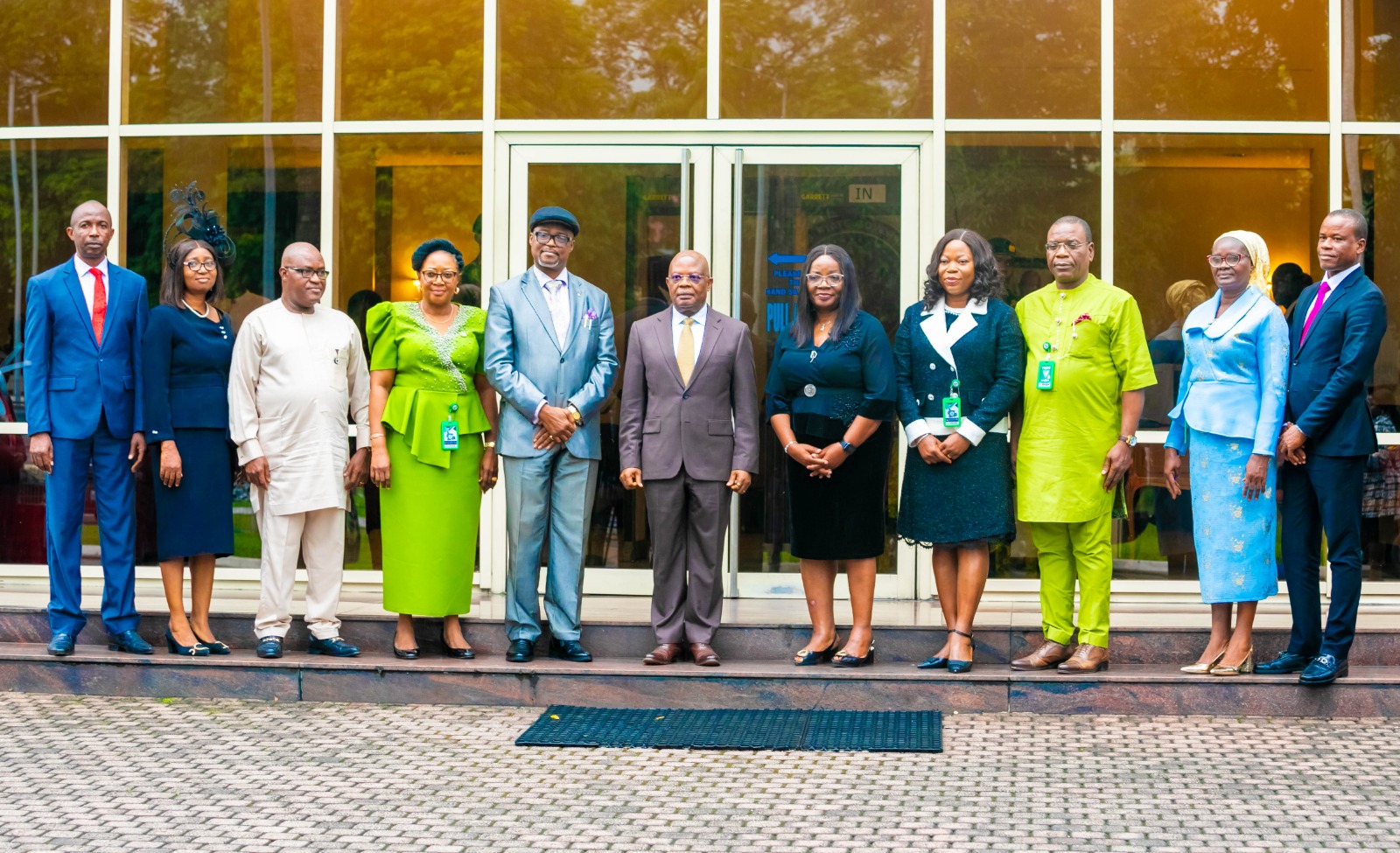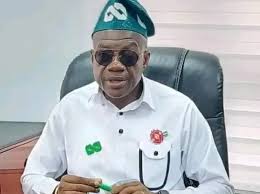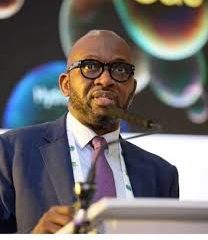Featured
Vocational Education And A Distressed Economy
The foundation of economic growth globally is technical/vocational education. Technical education is cardinal to the socio/economic development of any nation. Following this fact, stakeholders have emphasized the need to establish more well equipped technical schools in the country to boost development.
It was in realization of this importance that the federal government established the National Board for Technical Education (NBTE) in January 1977 in response to the acute shortage of technical manpower which was a major constraint towards the execution of the then 1975 – 1980 Third National Development Plan on Education.
The NBTE is saddled with overseeing the training of, and accreditation of academic programmes in all technical and vocational educational institutions. These institutions are to train middle-level technical manpower, and provide practical training.
Technical education is offered in institutions that are higher education in level, but non-university in status. Polytechnics, monotechnics (single discipline training), technical colleges, colleges of education, agriculture and health technology all provide higher technical education and training.
With the exception of colleges of education, which is overseen by the National Commission for Colleges of Education (NCCE), the rest of the technical higher institutions are coordinated by the NBTE.
As at October 2012, there were 110 approved tertiary technical institutions and 159 technical colleges under the purview of the NBTE, 74 polytechnics and 27 monotechnic colleges.
Others include, 36 colleges of agriculture, 50 colleges of health technology, 16 other specialised institutions, 71 vocational enterprise institutions (VEIs) and innovative enterprise institutions (IEIs), making a total of 543 institutions.
Analysts say this number is grossly inadequate given the unprecedented level of demand for technical education in the country. These institutions can only accommodate a fraction of the youths seeking admission because of inadequate space.
Records from the Joint Admissions and Matriculation Board (JAMB) indicated that out of 5.4 million applicants for admission into polytechnics between 2006 and 2012, only 1.2 million of them could gain admission, representing 21.5 percent.
Clearly, the inadequate number of vocational institutions has led to the arbitrary abuse of Carrying Capacity of Nigeria Tertiary Institutions. Carrying Capacity of institutions refers to the maximum number of students an institution can sustain for quality education based on human and material resources.
In other words, Carrying Capacity stipulates that the number of students to be admitted into programmes must be based on available facilities such as adequate lecture rooms, well equipped libraries, staff/student ratio, laboratories and equipment, among others.
But it has been observed that many technical institutions don’t comply with the rules. They indulge in borrowing lecturers and staff as well as facilities from other institutions to conceal their defects. Some stakeholders have frowned at the practice and describe it as improper.
An educationist and former principal, Mr. Ignatius Lawson, says such practice is immoral and fraudulent which ought to take the offenders to prison. According to him, schools should adhere to international best practice or be shut.
“International best practice provides for 30 students per class in technical and vocational and 40 for management-based programmes, but some institutions advocate 70, others even more than 100.
“Best practice also pegs staff/student ratio at 1:15 for technology-based programmes and 1:20 for non-technology based. This policy is aimed at ensuring quality of instruction and schools must not exceed their capacity or compromise minimum standard, “ said Lawson.
Similarly, a Port Harcourt-based lecturer, who chose to be anonymous, blamed the deficit in institutions and learning infrastructure in the country on poor funding and lack of attention to technical education.
She said infrastructure such as access to internet, library, textbooks, equipment, laboratories and classrooms are lacking and therefore result in the deterioration of technical education and learning.
“Technical and vocational education is all about skill acquisition and competence-based. Facilities that will enhance skill acquisition are important to the teaching and learning process in technical and vocational education.
“Unfortunately, these facilities like workshops, laboratories, studies and field facilities are lacking for the various programmes in conformity with the minimum standards prescribed in the curriculum,” she said.
Sharing similar sentiments, a legal practitioner, Mr. Biobele Fyneface, asked the government to expand access to technical and vocational education in line with equity and international best practice.
He added that although at this critical moment, the country required more technically skilled manpower in the economy, students’ enrollment into technically-related programmes cannot be increased arbitrarily without corresponding increase in the resources required to sustain the additional intakes.
A nursery/primary school proprietress, Mrs Elem Ochonma, observed that some important factors must be considered in determining the capacity for an academic programme without compromising quality.
According to her, the factors include the target population of prospective students to be trained, the human and material resources available for training and the technology and methodology to be deployed in carrying out the training.
She posited the need for quality assurance mechanism to ensure quality teaching and said the federal government should initiate steps that would enhance the standards of technical and vocational education in the country.
A civil servant in the Rivers State Ministry of Works, who asked to remain anonymous, said the number of technical schools in the country was inadequate and asked the government to establish more functional ones to boost access to skill acquisition. He said if technical institutions in the country were many, only few persons would like to go to the universities.
“I think we have a situation in this country where we focus too much on the liberal arts and sciences. Everyone goes to the university and then have no job on graduation. We need a skilled technical labour force in every state; almost as many technical colleges as the universities we have.
“You go to restaurants and hotels, and you don’t get good services because people don’t learn it. This is because we don’t have enough vocational institutions where people get proper training. If there were as many technical and vocational institutions as there were universities in the country, not everyone would like to go to the university.
“Therefore, there is need to elevate the standard of technical and vocational education so that the people can tap from the gains that accrue from it. This way we will reduce congestion in the universities and strengthen the service aspect of our industry,” he concluded.
In all, stakeholders believe that enterprise development, acquired through vocational education, is essential for job creation and poverty reduction.
Arnold Alalibo
Featured
Rivers A Strategic Hub for Nigeria’s Blue Economy -Ibas …Calls For Innovation-Driven Solutions

The Administrator of Rivers State, Vice Admiral (Rtd.) Ibok-Ete Ibas, has emphasized the need for innovation-driven strategies, strategic partnerships, and firm policy implementation to fully harness the vast potential of the blue economy.
Speaking during a courtesy visit by participants of Study Group 7 of the Executive Course 47 from the National Institute for Policy and Strategic Studies (NIPSS) at Government House, Port Harcourt, on Monday, Ibas highlighted the importance of diversifying Nigeria’s economy beyond oil by leveraging maritime resources to create jobs, enhance food security, strengthen climate resilience, and generate sustainable revenue.
The Administrator, according to a statement by his Senior Special Adviser on Media, Hector Igbikiowubo, noted that with coordinated efforts and innovative solutions, the blue economy could serve as a catalyst for inclusive growth, economic stability, and long-term environmental sustainability.
“It is estimated that a fully developed blue economy could generate over $296 million annually for Nigeria, spanning fisheries, shipping and logistics, marine tourism, offshore renewable energy, aquaculture, biotechnology, and coastal infrastructure,” he stated.
“We must transition from extractive practices to regenerative, inclusive, and innovation-driven solutions. This requires political cohesion, intergovernmental collaboration, robust infrastructure, and institutional capacity—all of which must be pursued with urgency and intentionality,” he added.
Ibas urged sub-national governments, particularly coastal states, to domesticate the national blue economy framework and develop tailored strategies that reflect their comparative advantages.
He stressed that such efforts must be guided by disciplined planning, regulation, and investment to maximize the sector’s potential.
Highlighting Rivers State’s pivotal role, the Administrator outlined its strategic advantages as follows:
•Nearly 30% of Nigeria’s total coastline (approximately 853km)
•Over 40% of Nigeria’s crude oil and gas output
•More than 33% of the country’s GDP and foreign exchange earnings
•416 of Nigeria’s 1,201 oil wells, many located in marine environments
•Two of Nigeria’s largest seaports, two oil refineries, and the Nigerian Liquefied Natural Gas (NLNG) terminal in Bonny Island—one of Africa’s most advanced gas facilities
Despite these opportunities, Ibas acknowledged challenges such as pollution, coastal erosion, illegal oil refining, unregulated fishing, inadequate infrastructure, and maritime insecurity.
He reaffirmed his administration’s commitment to institutional reforms, coastal zone management, and inter-agency collaboration to build a governance structure that supports a sustainable blue economy.
“Sustainability must be embedded in our development models from the outset, not as an afterthought. We are actively exploring partnerships in maritime education, aquaculture development, port modernization, and renewable ocean energy. We welcome knowledge-sharing engagements like this to refine our strategies and enhance implementation,” he said.
He urged the NIPSS delegation to ensure their findings translate into actionable recommendations that address the sector’s challenges.
Leader of the delegation, Vice Admiral A.A. Mustapha, explained that the visit aligns with their strategic institutional tour mandate on the 2025 theme: “Blue Economy and Sustainable Development in Nigeria: Issues, Challenges, and Opportunities.”
The group is engaging stakeholders to deepen understanding of policy efforts and institutional roles in advancing sustainable development through the blue economy.
Featured
INEC To Unveil New Party Registration Portal As Applications Hit 129

The Independent National Electoral Commission (INEC) has announced that it has now received a total of 129 applications from associations seeking registration as political parties.
The update was provided during the commission’s regular weekly meeting held in Abuja, yesterday.
According to a statement signed by the National Commissioner and Chairman of the Information and Voter Education Committee, Sam Olumekun, seven new applications were submitted within the past week, adding to the previous number.
“At its regular weekly meeting held today, Thursday 10th July 2025, the commission received a further update on additional requests from associations seeking registration as political parties.
“Since last week, seven more applications have been received, bringing the total number so far to 129. All the requests are being processed,” the commission stated.
The commission revealed the introduction of a new digital platform for political party registration. The platform is part of the Party Financial Reporting and Auditing System and aims to streamline the registration process.
Olumekun disclosed that final testing of the portal would be completed within the next week.
“INEC also plans to release comprehensive guidelines to help associations file their applications using the new system.
“Unlike the manual method used in previous registration, the Commission is introducing a political party registration portal, which is a module in our Party Financial Reporting and Auditing System.
“This will make the process faster and seamless. In the next week, the commission will conclude the final testing of the portal before deployment.
“Thereafter, the next step for associations that meet the requirements to proceed to the application stage will be announced. The commission will also issue guidelines to facilitate the filing of applications using the PFRAS,” the statement added.
In the meantime, the list of new associations that have submitted applications has been made available to the public on INEC’s website and other official platforms.
Featured
Tinubu Signs Four Tax Reform Bills Into Law …Says Nigeria Open For Business

President Bola Tinubu yesterday signed into law four tax reform bills aimed at transforming Nigeria’s fiscal and revenue framework.
The four bills include: the Nigeria Tax Bill, the Nigeria Tax Administration Bill, the Nigeria Revenue Service (Establishment) Bill, and the Joint Revenue Board (Establishment) Bill.
They were passed by the National Assembly after months of consultations with various interest groups and stakeholders.
The ceremony took place at the Presidential Villa, yesterday.
The ceremony was witnessed by the leadership of the National Assembly and some legislators, governors, ministers, and aides of the President.
The presidency had earlier stated that the laws would transform tax administration in the country, increase revenue generation, improve the business environment, and give a boost to domestic and foreign investments.
“When the new tax laws become operational, they are expected to significantly transform tax administration in the country, leading to increased revenue generation, improved business environment, and a boost in domestic and foreign investments,” Special Adviser to the President on Media, Bayo Onanuga said on Wednesday.
Before the signing of the four bills, President Tinubu had earlier yesterday, said the tax reform bills will reset Nigeria’s economic trajectory and simplify its complex fiscal landscape.
Announcing the development via his official X handle, yesterday, the President declared, “In a few hours, I will sign four landmark tax reform bills into law, ushering in a bold new era of economic governance in our country.”
Tinubu made a call to investors and citizens alike, saying, “Let the world know that Nigeria is open for business, and this time, everyone has a fair shot.”
He described the bills as not just technical adjustments but a direct intervention to ease burdens on struggling Nigerians.
“These reforms go beyond streamlining tax codes. They deliver the first major, pro-people tax cuts in a generation, targeted relief for low-income earners, small businesses, and families working hard to make ends meet,” Tinubu wrote.
According to the President, “They will unify our fragmented tax system, eliminate wasteful duplications, cut red tape, restore investor confidence, and entrench transparency and coordination at every level.”
He added that the long-standing burden of Nigeria’s tax structure had unfairly weighed down the vulnerable while enabling inefficiency.
The tax reforms, first introduced in October 2024, were part of Tinubu’s post-subsidy-removal recovery plan, aimed at expanding revenue without stifling productivity.
However, the bills faced turbulence at the National Assembly and amongst some state governors who rejected its passing in 2024.
At the NASS, the bills sparked heated debate, particularly around the revenue-sharing structure, which governors from the North opposed.
They warned that a shift toward derivation-based allocations, especially with VAT, could tilt fiscal balance in favour of southern states with stronger consumption bases.
After prolonged dialogue, the VAT rate remained at 7.5 per cent, and a new exemption was introduced to shield minimum wage earners from personal income tax.
By May 2025, the National Assembly passed the harmonised versions with broad support, driven in part by pressure from economic stakeholders and international observers who welcomed the clarity and efficiency the reforms promised.
In his tweet, Tinubu stressed that this is just the beginning of Nigeria’s tax evolution.
“We are laying the foundation for a tax regime that is fair, transparent, and fit for a modern, ambitious Nigeria.
“A tax regime that rewards enterprise, protects the vulnerable, and mobilises revenue without punishing productivity,” he stated.
He further acknowledged the contributions of the Presidential Fiscal Policy and Tax Reform Committee, the National Assembly, and Nigeria’s subnational governments.
The President added, “We are not just signing tax bills but rewriting the social contract.
“We are not there yet, but we are firmly on the road.”
-

 Rivers2 days ago
Rivers2 days agoCorrectional Service, Not For Juveniles – Controller
-

 Sports2 days ago
Sports2 days agoNBBF Announce tip-off date for men’s basketball league
-

 Politics2 days ago
Politics2 days agoOkocha Remains Party Chairman In Rivers, APC Reaffirms
-

 Niger Delta2 days ago
Niger Delta2 days agoBayelsa Ministry Resorts To Intimidation, Arrests … As Journalists Uncover Fraud
-

 News2 days ago
News2 days agoW’Bank Plans $250m Health Loan For Nigeria, Sept
-

 Rivers2 days ago
Rivers2 days agoRenaissance Energy Inaugurates EMR System For Maternal, Child Health In Rivers
-

 Sports2 days ago
Sports2 days agoNational Trials: Nigeria Set For Relay Ticket
-

 Politics2 days ago
Politics2 days agoAny Politician Promising Single Term Needs Psychiatric Evaluation – Soludo


